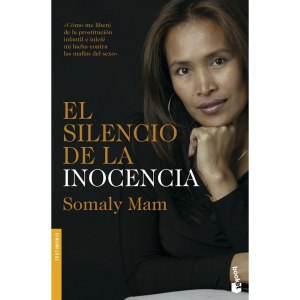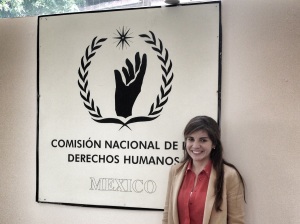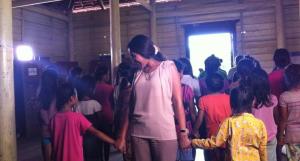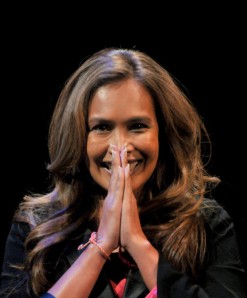How to overcome fears which prevent us from leaping forward
After a brief time away thanks to the wonderful world of motherhood, I am back with a post dedicated to a key theme in human life: What do we do when life asks us to take a leap forward and we are faced with fear?
Life is full of challenges, some easier and others more complex. Who emerges victorious from these challenges? What does it take to take a leap forward and accomplish a dream?
Fear exists and it impedes. But also understand that fears form part of the human person and are key for our survival. If fear didn’t exist we would be reckless and brash, thoughtless. Throughout History the great inventors never arrived at their discoveries through their knowledge alone. A little more was always required: employing other skills in order to triumph.
1) Excitement/Hope. Excitement and hope aren’t the product of happiness, but a part of its construction. To have hope is to live looking forward, to inject a little bit of passion in our life, in our activities, in our relationships and our work. It is to feel alive. It is intimately linked with motivation. The word motivation comes from the latin motivus or motus which means “cause of movement,” which is to say an internal state that activates our conduct and maintains it during difficult times. Edgar Allan Poe once said, “Those who dream by day are cognizant of many things which escape those who dream only by night” and having hopes allows us to dream.
2) Faith. Faith as a conviction that some good can come of any situation, no matter how bad. There is an ocean of uncertainty which man has not yet traversed, but when faith in a project is maintained, one is able to enter and pass through the nebula. Those who have arrived at their goals take risks, and they advance by a path that they do not entirely control, in order to arrive at the destiny they desire. In a world such as ours today where we are anxious to control all of the variables in our life, it is difficult to have faith. The first step is to know what one wants.
We must begin by believing that we carry a talent within us, and that there are possibilities that exist in our lives and our environment which will allow us to achieve our dream. Having faith and excitement in this good that we hope and long for is key to conquering our fears. Faith is profoundly linked to courage, to audacity… To step outside one’s comfort zone requires valor. How dangerous it is to stay comfortable with the familiar when this mortal inertia inevitably hurts us! Our brain is capable of confronting uncertainty.
3) Constancy and will. Picasso said, “Inspiration exists, but it has to find you working”. If we are not constant in what we do, in our day to day lives, it is difficult to obtain the results we want. Constancy is tenacity, steadfastness and perseverance. It is not giving oneself up for defeated, it is persevering despite problems and conflicts. That constancy is achieved on a continuous basis. The constant person looks ahead with the excitement and hope of reaching a proposed goal. When difficulties pass and constancy is maintained, one feels full of strength. Habits are reached with the repetition of acts. Self-mastery in the little things. A learning composed of training. In the long run, the feeling is that one has brought out the best within themselves, conquering their fears.
“Be the change you wish to see in the world” Gandhi said. Society is directed toward where one decides to go, whether that is staying in or venturing out. The secret of success in many lives is found in the perseverance of their objectives.
“Fear always wants to see things as worse than they are”. Tito Livio
————————————————-
Emotional Intelligence. The health benefits of learning to manage our emotions
The other day I had a very interesting conversation about emotional intelligence. Summer is a good time to sit down with ourselves and explore those themes that help us to understand ourselves and recognize the recent motives for our behavior.
Why do some people seem to know how to handle conflicts and setbacks with less suffering? Why is it that sometimes the most intelligent student doesn’t end up being the most successful?
Emotional intelligence is the reason.It can be complicated to comprehend this concept, especially since it brings together two ideas (intelligence and emotions) that appear distance at first glance. Perhaps we understand better when speaking about theoretical, practical, scientific or social intelligence… All types of intelligence serve to adapt to the processes of change.Emotional intelligence is the capacity to express and know one’s feelings, to be conscious of them and bring ourselves closer to the emotions of others. It is to know how to manage conflict and daily setbacks. It is to experience empathy toward those around us, generating a positive atmosphere in our surroundings. That is to say, we speak of the ability to manage emotions in the correct manner, as much our own as those of others, being capable of analyzing feelings, above all when they are negative (sadness, ire, anger, aggressiveness) and understanding what has brought us to react this way.
When someone tends toward anger easily, responding with an irritable or testy attitude, this person possesses low emotional intelligence. Instead, someone with a good knowledge of themselves and their reactions, who thinks before acting by controlling their impulses, and is capable of relativizing and simplifying the complex, problematic and difficult, this person has a developed emotional intelligence.
Emotional intelligence helps us to persevere despite difficulties and it is capable of regulating our states of animation.If we achieve uniting our emotions with our intelligence in the same direction we can reach an important interior peace and equilibrium. We learn to join the head and the heart, our ideas and our emotions, with mastery. If someone dominates this aspect of their life, they will go far in their professional, personal and family life.
Anger, sadness and irritability are emotions that damage our physical healthy in an extraordinary manner, which can include an alteration of the blood flow to the brain. The American cardiologist Meyer Friedman and his colleague R.H. Rosenman discovered that those people who present a type A personality (people chronically angry, irritable or impatient) have higher cholesterol levels and a risk seven times greater of presenting clinical signs of heart disease and stroke. One study from Harvard Medical School showed that people who had suffered a heart and later learned to manage conflicts, anxiety and negative emotions reduced their risk of a future heart attack by nearly a half. Likewise, other studies in the Mayo Clinic observed that stress and anxiety are some of the clearest indicators for cardiovascular complications and illness.
Positive emotions (happiness, wellbeing, interior peace) increase our resistance to illness. This is something that has been referred to in recent years as psychoimmunoendocrinology. Today it has been shown that despite being diagnosed with a grave or incurable illness, the medical benefits of positive feelings, a stable emotional support, and a healthy, familiar and medical social environment help in the evolution and prognosis of illnesses. This is a field every time more studied in science. Today the words of the Roman poet Juvenal en the first century remain relevant: “mens sana in corpore sano.”
To be sure: we can’t hide what we feel inside our interior, because in the long-run this will transform into a toxic content for the mind and harmful to our body. Having a good emotional education means having the ability to give and receive love. One of the keys consists in learning to express these emotions, from gratitude, to forgiveness, to verbal and non-verbal displays of affection. The power of emotions if important and determines our physical health as much as our psychological. There will always be situations, events or people who make us feel bad or provoke negative feelings within us. It all depends on how we manage or respond to those emotions. If we achieve working our emotional intelligence we will be able to control our negative emotions, especially those of ire, stress, anxiety…; we will have greater facility to tolerate frustrations, to adopt an empathetic attitude, to understand the reactions and emotions of others in order to be capable of creating a harmonic and serene atmosphere in our surroundings.
Emotional intelligence aspires to find interior peace and happiness. What determine our happiness are emotions. Happiness is not what happens to you but how you interpret what happens to you, because happiness is a way of looking and living with reality.
“People with well-developed emotional skills are more likely to be satisfied and effective in their lives, and to master the habits of mind that foster their own productivity; people who can not put some order in their emotional lives fight inner battles that sabotage their ability to concentrate at work and to think clearly”
Dr. Daniel Goleman
———————-
To lead is to serve
A leader is a person with a vocation for service and deliverance. Without these two qualities it is practically impossible to become a true leader. One may push, order, or direct, but he will not know how to reach the hearts nor conduct of those that surround him.
The authentic leader can be born, but above all he is made, working and developing the capacities and talents that he possesses with effort and enthusiasm.
Being a leader is distinct from being famous. Now a days we live surrounded by programs about the love lives of people without prestige. They are fashionable and have a large audience. They stimulate curiosity, without seeking an attitude healthy, coherent or true of human beings. People follow these programs because they hamper our own personal frustrations and traumas upon seeing famous lives broken, without meaning or direction.
Being a leader means knowing how to govern oneself. It’s not an easy task. Lao-Tse said: “he who conquers others is strong; he who conquers oneself is mighty.” The dominion of oneself is complex and arduous, because life is uncertain, changing, fluctuating…We don’t have security of hardly anything and we look for answers to questions that on many occasions don’t have a solution. Those who triumph are the ones who not only look for answers to life’s questions, but dream and enjoy their experiences with a positive and hopeful vision. They are capable of transmitting that enthusiasm.
All of us look for success in one form or another. But in order to achieve it, we must being by defining it. Don’t let others define your success! Otherwise one will end pursuing the dreams of others. Self-control begins by knowing who you are, what you want, and how you want to achieve it. On many occasions we will find ourselves with failure as our fellow companion. Failure well taken, unlike success, informs us and is a great teacher and that allows us to grow. What lets you progress as a person is failure assumed in the correct manner.
A leader has the ability to dream, to believe in the impossible. When the ingredient of enthusiasm is present, it is much easier to convey this dream however lofty it may seem. Through that passion, those who surround him increase their own capacities and talents. They improve because they want to arrive at those goals set with fervor.
Being a leader is very much related with strength, not in the sense of a tough or inflexible character, but in continuing patiently and constantly in the fight to achieve the proposed goals.
There is no leader without humility. Humility keeps our feet on the ground, not thinking too much of ourselves; preventing us from thinking that we are superior to others. Instead, the humble leader possesses the gift of listening to others, of learning from those around him above all of sharing. He is capable of pooling knowledge, wisdom, and experiences without fear of losing his prominence or leadership. Talent calls for talent, letting the good around it grow. In turn, mediocrity invites mediocrity. I see many people at the clinic with low self-esteem, who underestimate themselves; and I always reiterate that I’ve never met anybody without talent, but that I have known lost individuals, who don’t find themselves and therefore don’t know how to see the worth that they carry within themselves. When someone disoriented encounters a leader, the leader knows how to explore their interior and bring out their best. He can smooth out their rough spots, and make the excellence that they possess shine.
A good leader is authentic, that is to say, a good relation exists between what they think, say and do. His conduct is exemplar and he is capable of bringing those around him toward their best. Words help but above all it is example that unites hearts and minds toward a common goal. A leader helps others display their true being, their potential talents and capacities.
Leadership is a call to know how we are, how we react, how we feel and how we relate with others. Those who lead with courage, authenticity and coherence create an atmosphere of hope and growth. They know how to call for change, for an interior revolution. A leader helps others to reach a height that on occasions neither they themselves thought possible to grasp. He opens minds to new horizons of growth and personal development. A leader not only directs, but inspires. Leadership is a way of being and a way of treating others.
—————————————————————————————————
IT TAKES TIME TO ARRIVE TO SIMPLICITY
It’s curious that to think and express oneself simply can often be fear-inducing. Life is much easier than it seems; the problem lies in those individuals devoted to complicating it, “professional problem-makers.”Many people, seeking to be the center of attention, or to feel special, take difficult and complex approaches to their ideas. Sometimes we need to recognize when to remove ourselves from these individuals so that they don’t affect us. As Einstein said: “Everything should be made as simple as possible, but not simpler.”

True simplicity can only arise from inside of ourselves. Within each one of us exist battles, dreams, and impulses that make us become prisoners to a complex world of emotions and thoughts. We psychiatrists know a lot about this theme. Simplicityof mind is reflected in our behavior. It is known that one of the common characteristics of those who suffer from a personality disorder is that they live constantly surrounded by negative, tangled, and complicated thoughts that translate into anxious and distressed conduct or moods. Acquiring simplicity of thought helps us to avoid becoming victims of our internal conflicts.

Simplicity helps us to see life with a new pair of eyes, to have a vision that goes beyond the events of daily life so that reality enters our heart distinctively.We are transformed, and grow sensitive to nature. Without simplicity, we cannot sense the internal message of things. With a healthy ingenuous approach, we are able to make out the subtle signs that life sends us to appreciate the internal beauty of our surroundings. Because, after all, simplicity is being able to engage with reality in search of the truth of things.

It is a trait of intelligent persons to know how to simplify the mind, reducing the complex to the elemental. In other words, making difficulties simple while not complicating easier things. The path toward simplicity is long, a work of craftsmanship;we must be willing to take off the many layers that pile on us throughout the years. It’s arriving at a balance between spontaneity and straightforwardness; reaching one’s own style. The uncomplicated individual is capable of laughing at himself and his mistakes, and has a healthy optimism.
Simplicity combines gentleness and wisdom. We fly toward infancy; already the virtue of children and a dream of the greats. Kids are constantly looking for the “why” of things. They’re powerful philosophers. With their simplicity they are able to understand their environment much better than adults, precisely because they concern themselves more with looking and observing than thinking. Simplicity is being the innocent child and the wise teacher.

The Argentinian writer Ernesto Sábato once said: “A good writer expresses great thoughts with small words.” Let’s not forget that big ideas can almost always be expressed with simple words and that it takes time to arrive to simplicity.
Einstein: “If you are out to describe the truth, leave elegance to the tailor.”
The Value of Suffering
Man needs tools to overcome the hurts and traumas of the past. The episodes that impact us physically and psychologically leave their mark on our biography. The way in which one overcomes and restarts marks our personality in many aspects. To live is to encounter moments of great difficulty and suffering, and to restart.
We have all experienced eras in our lives where we recognize that we need a pause or break to reset ourselves, to recuperate our strengths or simply return to starting over. In those moments tension accumulates, sensations of exhaustion and low self-esteem arise, and we find ourselves more vulnerable than ever. But, we mustn’t forget that tired soldiers win the battles; wars are our teachers of interior fortitude.
I like to define happiness as that equilibrium and interior harmony that we possess upon learning that to live in the present is with an assimilated and accepted past, looking toward the future with eargerness. To be happy is to be capable of getting over defeats and getting up again. To live in the present can at times become a nightmare. In some cases one craves to flee forward; in other moments one becomes blocked and stays paralyzed in some memory or past traumatic event. To sit oneself down in the past turns us into sour, spiteful persons; incapable of forgetting the damage done or the emotion suffered.
That harmony or balance is stability, maturity; to reach the plenitude of soul. This process is slow; to think that the balance is something motionless, inert or passive is a mistake. Balance is knowing to maintain certain interior peace equanimity and harmony despite the thousand avatars of life. When someone overcomes the symptoms of sadness, suffering and pain, one comes out stronger. Pain is therefore the school of fortitude. That strength which emanates from suffering healthily accepted is key to reaching happiness.
After the shock, we must resume the reins of our life in order to reach the goals of our life projects that we have outlined. To be masters of our personal story. The easy part is to act in the short-term, the difficult part is to design our life for the long run. One who doesn’t have that project, who doesn’t know what he wants to be, can’t be happy.
Suffering has meaning. Modern society flees from it and often when one comes across suffering, questions arise such as “Do I deserve this?; Is this because of my past mistakes?, Why does God allow this?”.
Pain possesses a human and spiritual value. It can elevate us and make us better persons. How many people do we know that after a setback in life have been capable of straightening out their lives and seeking alternatives that they have later come to be grateful for! It is not rare to find people that, after a life of superficiality and conformity, have been transformed after a hard blow to their life.
Suffering enriches intelligence that helps us to reflect to arrive to the depths of many questions that we never would have considered. When pain appears, it moves us to clarify the sense of our lives; of our most profound convictions. The masks and appearances are diluted and our real self arises. The French philosopher Gustav Thibon said that “when man is ill (suffers), if he is not essentially “off”, he keeps in mind that when he was healthy he failed to take care of the essential; that he preferred the accessories to the essential.”
Pain helps us to accept our limitations. It makes us become more vulnerable and we fall from the pedestal that we had placed ourselves on. It is important to check our heads and recognize that we need help, that we need the care and support of others; that we can’t do it alone. The need to ask for help or consolation arises and this can be the first step toward simplicity. Future paths are opened toward love toward others, solidarity and empathy. After a period of suffering, one grows closer to the souls of other people. One better understands those that surround them, being capable of putting themselves in the place of another, of understanding them as themselves and accepting them as they are. Suffering, therefore, transforms the heart. When one feels loved, their lives change, they illuminate and transmit that light. Authentic love is enhanced with healthily accepted pain which frees us from egotism. He who gains empathy is more loveable (they allow themselves to be loved) and it converts their house into a place more homely to live.
Suffering can be the path of entrance toward happiness if one shows the will to obtain it and they possess the tools for it. Pain drives toward the true maturity of the personality; to the handover to others and a greater knowledge of one’s self.
——————————-
AN INTERVIEW WITH SOMALY MAM

Interview with Somaly Mam
My dearest Somaly, it’s an honor and a joy to do this interview with you. In the time since we’ve met each other many things have happened…but, let’s start by speaking about you, from the beginning…what do you know about your origins?
I don’t know my name, or my date of birth. I celebrate my birthday on the second of April, but I don’t know when I was born. My adoptive father picked the name Somaly because it means “necklace of flowers lost in the forest.” I like that,it reminds me of my roots.
I lived like a wild girl since I didn’t have family. My house was everywhere and nowhere.


Who were you close to in your childhood?
I remember playing with other kids when I was little; begging for affection from some “mom” or “mother,” for a hug or a kiss. I liked nature and walking through the fields. Sometimes I would speak with the trees, who were my friends and confidants and “they” always listened to me attentively (smiles).
How was the political situation in Cambodia during your childhood?
I spent my childhood in a mountain town under the Pol Pot regime; I don’t remember seeing a single soldier from the Red Khmers when I was little. I don’t think they interfered in our regions because they were extremely poor, scarcely populated, and seemingly forgotten by the State. I don’t think that I ever saw a doctor, a nurse, or a teacher, it was a really poor zone.
How do you feel about knowing “hardly anything” about your biological parents?
Until I had my own daughter I often thought that I hated them for abandoning me. Many times I was jealous of other children when I saw them near their parents. My adoptive father taught me a typical Khmer saying “don’t hurt yourself, it’s better not to stir up the past.”
When did the loss of innocence occur?
When I was about 10 years old, a man whom I called “uncle” entrusted me to a man from his family who turned out to be my grandfather. At first I trusted him, he seemed to want to treat me well, but then he turned to drinking and his businesses didn’t do so well. One day he tied me down, grabbed a rod, and beat me. It was hell. At night I would go near the river to delay those horrible moments from arriving.
Then, when he was 82 (I must have been 12) my grandfather asked me for a favor, which was to look for gas at the local Chinese shop. I knew the man who worked there, but when I arrived he dragged me to a hidden spot and raped me. He forbid me to say anything. I didn’t understand what had happened.
Now I understand why I felt the way I did; I speak with many girls from my center and they tell me how they feel that “first time” they were raped or felt obligated. There is a lot of shame and many of us don’t know the weight that it is to carry that burden. We don’t have enough psychiatrists here! (She looks at me and winks with a playful smirk, never losing her trademark smile)

United Nations Commission on Human Rights (Mexico)
How did you arrive to Phnom Penh?
Before Phnom Penh I worked as a nurse at a hospital. I had been obliged to marry a Cambodian man, and he died on the warfront. I worked as a nurse or assistant or whatever you would call helping without stop at the hospital. The sick were even greater because of the war and we helped them as best we could. The atmosphere was bad and the doctors didn’t treat us well. In general they raped us, but there was no way of reporting anything, to whom? It was all very complicated.
One day my grandfather arrived where I lived and he told me that he was going to bring me to the city where he metan aunt of his. Upon arriving he sold me to a brothel. I saw how that woman gave money to my grandfather. How did I not kill him? The only thing that I can think of is that they had educated me like a slave to obey. Girls like me didn’t have our own life. It’s certain that at some point it occurred to me to poison him or hire a hitman, but I was too cowardly for that.

How was the hell that was the brothel?
My first reaction was to refuse to receive clients at the brothel; but the pimp hit me hard, he raped me, he locked me in a bedroom and threatened to beat and violate me for every day that I didn’t receive clients.
I succumbed. My story in the brothels is horrible, but in being there, “sex” became something automatic, sometimes you didn’t even think about it. You become a machine. Marian, since I’ve known you I’ve been telling you stories, terrible stories; sometimes I continue to dwell on these stories of the past but in general I try to forget them all. During this time in my life I tried to confide in people that I got to know little by little, but they always ended up raping me. I remember one client who treated me well and I ended up escaping with him. He brought me to a city in the north and lowered me into a truck full of people; that night all the men in the truck raped me, one after the other. The client had sold me to the truck driver!
I have forgiven…I have loved more than I have hated. That is the key to happiness; this is what I convey to the girls.
Since I was able to escape that world, create my own family, my foundation…I have learned to be very happy, although I recognize that I often suffer when the girls tell me their own stories.
You accompanied me when you were in Cambodia to the karaokes and brothels. The atmosphere is terrible. It’s tough. There are times when I enter that I can’t breath for the things I feel or see.
A little while ago a girl was going to visit a brothel and was pregnant. The pimp forced her to see patients before the delivery and the day after. This affected me and made me suffer a lot. I cry inside. Many pregnant girls continue with the pregnancy, it’s incredible; suddenly they have a reason to continue living! They love “someone.” I have seen girls grieve a lot after abortions, although the child may be from a client. Freedom in these cases is key, but we must give all available information possible. Some years ago we obtained a law to prevent HIV in the brothels, so they can’t close the doors on me. I do all the prevention that I can.

What do you do to prevent sex trafficking?
Marian, there is a lot of money behind all of this. It isn’t easy. Many people don’t like me, or like me as a “bad” person. I say the truth, I fight for those girls. Nobody chooses prostitution by their own choice. I want to explain that to you well. There was a moment in my life when I already had my freedom and I could leave. But to where? In not knowing what to do, without direction, I returned to the brothel. The girls sometimes don’t have another option, another choice; but that doesn’t mean that they want to be there.
The psychological work that is done with them afterwards is very difficult. You saw it when you worked with some victims in Tom-Dy (a Cambodian rehabilitation center run by AFESIP). Stockholm Syndrome, the inability to continue forward, exists; and many choose to return.
What work do you all do at the Foundation?
We have AFESIP that is responsible for rescuing girls from the brothels, rehabilitation, and reintegration. The Somaly Mam Foundation has “Voices for Change;” it’s in charge of giving additional strength to the women; implementing prevention in the media; at universities…the survivors make up the organization and are carrying out an important awareness project.
Your motto Somaly…
My motto is “life is love”, “love with no conditions”, “empower yourself, live for yourself”.
There are two people who spoke of this and it impacted me a lot. One is John Pual II; I got to know him a few months before his death and I remember he gave me several books and he told me “love is the solution, love cures all”. A few years later I met the Dalai Lama who spoke to me about love, forgiveness, and interior peace. He taught me the importance of meditation and I have practiced it a lot since then. For me it has meant a very important change, now I do all the good I can… I have learned to accept my past and not suffer by reliving it.
I have lived the difficulty of escaping from a brothel, I have suffered in my skin, in my heart the pain of feeling nothing; of not believing anything; of not considering anything. So, I encourage the girls to leave the brothels; by leaving, a new and different life can be found. I need to survive, to be strong; from my strength is born the hope that I transmit; there are 3000 girls that call me “mommy”, it’s incredible, isn’t it?

To finish…
Thanks Spain! Thanks to Queen Reina Sofía, she has always loved me “unconditionally”. She has shown me her support despite many people being opposed to the idea, and has come to see me and give me her love. These days in Spain she came to visit me and it has been an honor for me…
The key to happiness is forgiving and loving, maintaining a positive outlook toward the worldand transmitting hope.


Pingback: Mi historia con SOMALY MAM | Comprender es aliviar
Pingback: EL VALOR DEL SUFRIMIENTO. | Comprender es aliviar
Pingback: A LO SENCILLO SE TARDA TIEMPO EN LLEGAR. | Comprender es aliviar
Pingback: Inteligencia Emocional. Ventajas en la salud al aprender a gestionar las emociones. | Comprender es aliviar
Pingback: Liderar es servir. | Comprender es aliviar